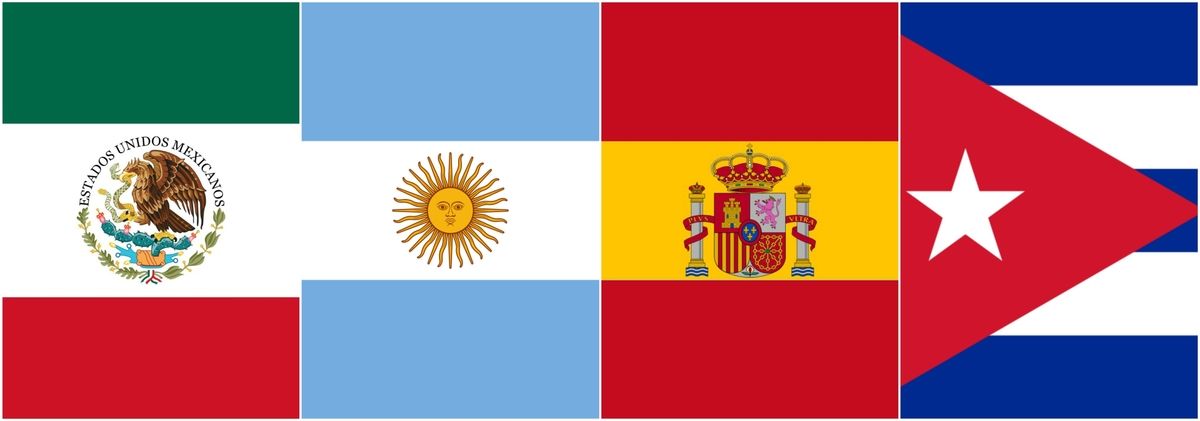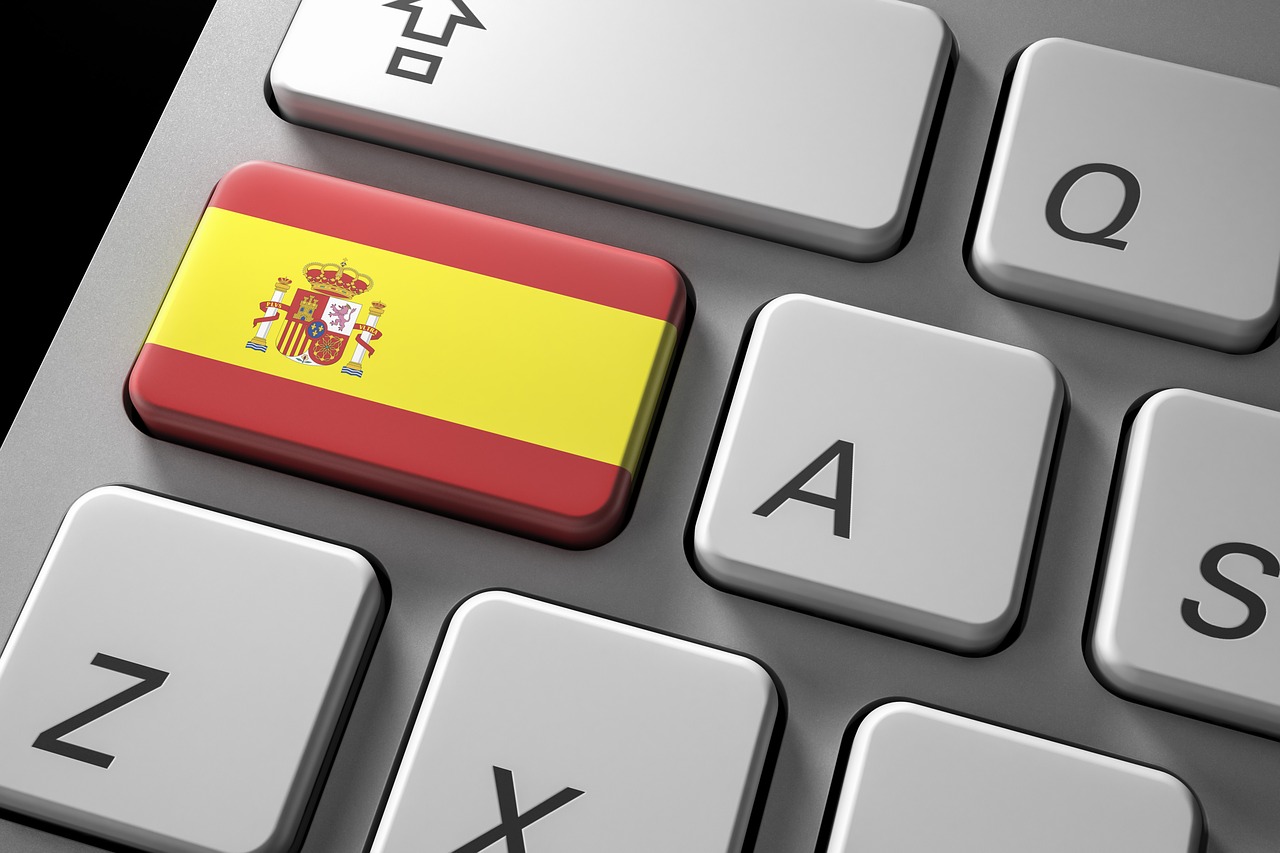Best Spanish Words to Practice as Beginner: The Definitive List

When I first started to learn Spanish, I would get annoyed when someone would correct my pronunciation. My wounded ego would respond with “Leave me alone, I just want to get the words and the word order right. I can work on pronunciation later.”
What I soon found out shortly after I started to speak more regularly is that I needed to work on pronunciation as well so I could be understood. I thought that I sounded great until I really began to study pronunciation.
I’m not alone in my thinking of leaving pronunciation the last point to learn. Even most instructors don’t teach pronunciation.
But pronunciation is so important. In a 1975 study by Susan Oyama found that “The social penalty, first of all, that may be paid by accented speakers is sometimes serious.” Basically, native speakers will hold your accent against you.
That being said, there are surprising details when you're learning Spanish pronunciation that can be found in this article. Did you know that there are We'll go over some of those details and show you the words that you need to learn to master those sounds.

How to Pronounce Vowels
a
Pronouncing 'a' in Spanish is a lot like saying 'father' in English. Remember to keep the vowel short. You'll start to notice a difference between drawn out vowels and short, crisp vowels.
Example #1: Mango (Mango)
Example #2: Palabra (word)
Example #3: Abrazo (hug)
Example #4: Actual (present)
Example #5: Cambio (change)
e
The 'e' sound is more challenging than most people realize. It's a familiar sound, as it's like the 'ay' in hey in English. Where most people, myself incuded get tripped up is not smiling when we pronounce the Spanish vowel 'e'. When we don't smile, it becomes more like a 'uh' rather than 'ay.'
Example #1: Él (he)
Example #2: Teléfono (telephone)
Example #3: Tener (to have)
Example #4: Escuela (school)
Example #5: Mes (month)
i
Pronouncing i in Spanish is quite a bit like pronoucning 'ee' as in "wheeeeee! This is Fun!" Again, speaking Spanish is forcing you to smile and have fun with learning!
Example #1: Vivir (to live)
Example #2: Difícil (difficult)
Example #3: Iniciar (to initiate)
Example #4: Igualmente (equally)
Example #5: Ir (to go)
o
The letter 'o' in Spanish is just like saying 'No' in English. The key to pronouncing 'o' correctly is to keep it short, just like the words below.
Example #1: Cosa (thing)
Example #2: Sobre (over, above, envelope)
Example #3: Poder (power, to be able to)
Example #4: Algo (something)
Example #5: Nostoros (we, us)
u
The 'u' in Spanish is similar to saying 'ooo' and again, the key is to keep the vowel short.
Example #1: Muy (very)
Example #2: Último (last, final)
Example #3: Escuchar (to listen)
Example #4: Único (unique)
Example #5: Espíritu (spirit)

Dipthongs
Dipthongs are two vowels combining to form one syllable. In Spanish, there are is a simple way to handle dipthongs - pronounce all of the vowels. There are a couple of exceptions, but the vast majority of the time, you pronounce all of the vowels.
Example #1: Aún (still)
Example #2 Seat (Spanish auto manufacturer)
Example #3: Europa (Europe)
Example #4: Medio (half)
Example #5: Vuelta (trip, return, lap (in sports))

The Consanants
b
As we move on to consanants, you'll notice a lot of similarities between English and Spanish. The letter 'b' in Spanish is just like the letter 'b' in English.
Example #1: Debajo (under)
Example #2: Bebe (drink)
Example #3: Saber (to know)
Example #4: Bastar (to suffice)
Example #5: Buscar (to look)
c
The C sound in Spanish is very similar to the hard c in English. Most words are pronounced with a hard c like cat. However, if the letters e or i follow C, then the rules change. The word is then pronounced with a soft s sound.
In castiallian Spanish, the word is then pronounced with a theta 'th' sound.
Example #1: Con (with)
Example #2: Cansado (tired)
Example #3: Como (how)
Example #4: Cuando (when)
Example #5: Cuarto (fourth, room)
ch
This is a familiar sound for English speakers. It's just like saying church or cheese.
Example #1: Noche (night)
Example #2: Coche (car)
Example #3: Queso manchego (Manchego cheese)
Example #4: Chico (guy)
Example #5: Muchas (a lot)
d
The letter d is familiar to English speakers. The trick with this letter is that when you day the letter d as in dog, the middle of your tongue is at the roof of your mouth.
In Spanish, you want the tip of your tongue to be right behind your front teeth, and it's a quick d. It's a subtle variation, but one that will enable you to sound like a local.
Example #1: Dicho (mentioned, said)
Example #2: Dentro de (within, inside)
Example #3: Todo (all)
Example #4: Pasado (past, last)
Example #5: Ayuda (help)
f
The letter f in Spanish is very similar to English. It's just like saying father, which is very familliar to you.
Example #1: Fuente (fountain, source)
Example #2: Forma (form, shape)
Example #3: Fuerte (strong)
Example #4: Familia (family)
Example #5: Fin (end)
g
The letter G has a couple of sounds in Spanish. For the most part, the letter G is pronounced similar to gut in English. However, when followed by the letters e or i, then the pronuncation changes to a more gutteral sound.
Think of how you imitate a hissing cat - lips are wide and narrow with a gutteral hiss. It's very similar to that, only a much shorter sound.
Example #1: Grande (large)
Example #2: Gobierno (government)
Example #3: Iglesia (church)
Example #4: Regalo (gift)
Example #5: Gente (people)
Example #6: Energía (energy)
Example #7: Argentina (Argentina)
Example #8: Gibraltar (Gibraltar)
h
The sound of silence. That's what you should hear and say when it comes to the letter H in Spanish. My name is Heather, and it is probably the most difficult names for people to say because they don't understand that the H in my name is actually pronounced. So I just have people call me Isabel.
Example #1: Hola (hello)
Example #2: Hay (there is)
Example #3: Ahora (now)
Example #4: Hasta (until)
Example #5: Hacer (to make)
j
In Spanish, the letter j is pronounced very mich like the letter h in English. There is a slight gutteral sound that accompanies this pronunciation.
Example #1: Juego (I play)
Example #2: Trabajo (job, I work)
Example #3: Mejor (better)
Example #4: Hijo (son)
Example #5: Mujer (woman)
k
The letter K isn't actually a part of the Spanish language. It was imported from English. As you can imagine, the words that use the letter K are typically English words. The pronunciation is that same as in English.
You'll notice that there aren't many examples here. That's because it's not used that much in Spanish since it's of foreign origin.
Example #1: Kiwi (kiwi)
Example #2: Nueva York (New York)
Example #3: Kilo (kilo)
Example #4: Bikini (bikini)
Example #5: Whisky (whisky)
l
L in Spanish is close to l in English. However, pronouncing the letter l in Spanish is similar to saying el.
Otherwise, it's just like saying l in English.
The fun will really start when you try to pronounce the ll.
Example #1: Lo (it)
Example #2: Dulce (sweet)
Example #3: Totalmente (totally)
Example #4: Línea (line)
Example #5: Sala (room)
ll
The 'll' is spoken as if you're saying yes or yellow. In some countries, ll is spoken like you're saying j in English.
This is demonstrated in the first word below.
Example: #1: Ella (she)
Notice here, where the female voice says ay-ja? That's typical pronunciation for some Spanish speaking countries.
Example #2: Allí (there)
Example #2: Llamar (to call)
Example #3: Llegar (to arrive)
Example #4: Caballos (horses)
m
There really is no difference between saying the letter m in English and Spanish. How's that for simple?
Example #1: Hombre (man)
Example #2: Tenemos (we have)
Example #3: Siempre (always)
Example #4: Mundo (world)
Example #5: Mismo (same)
n
You can for the most part get away with saying it just like you do in English. However, if you want to take your pronunciation to a nativ speaker level, there are a couple of things to keep in mind.
Example #1: Nuestro (our)
Example #2: Cuanto (how much)
Example #3: Nunca (never)
Example #4: Ningún (no, neither)
Example #5: Entonces (then)
ñ
With the ñ, it can be easy to get thrown off in saying it properly. It's actually easier than you think. It's just like saying the 'ny' in canyon. It's a nasal sound.
Example #1: Año (year)
Example #2: Niña (young girl)
Example #3: Mañana (tomorrow)
Example #4: Madrileños (people from Madrid)
Example #5: Soñar (dream)
p
You already know the letter p in English. The good news here is that there is no difference in pronouncing p in Spanish and English.
Example #1: Pierna (leg)
Example #2: Campo (field)
Example #3: Espacio (space)
Example #4: Pueblo (town, village)
Example #5: Pensar (to think)
q
I'm going to keep this letter really simple. It's just like pronouncing K. Like all letters in Spanish, keep the pronunciation short and crisp.
Example #1: Que (that)
Example #2: Equipo (team)
Example #3: Porque (because)
Example #4: Máquina (machine)
Example #5: Izquierda (left)
r
The letter R by itself is challenging because it's a short, sharp trill. You're going to save the longer trills for the RR sound, which is next.
Be sure to listen to the difference between Pero and Perro. It will help you understand the difference between a short and long trill.
Example #1: Pero (but)
Example #2: Ropa (clothes)
Example #3: Otro (other, another)
Example #4: Abrir (to open)
Example #5: Periódico (newspaper)
rr
This is arguably the toughest sound for English speakers to say in Spanish. The best advice I can give is to practice it. A lot. Listen and imitate the sound. It's OK if it takes a while to get. Most Spanish speakers are pretty forgiving and understand this is the hardest one to learn.
Example #1: Perro (dog)
Example #2: Error (error)
Example #2: Cerrado (closed)
Example #3: Correr (to run)
Example #4: Ocurrir (to happen)
s
The letter S is exactly like English. Just be aware that some dialects like to drop the S altogether, especially if it's at the end of a word.
Example #1: Seguir (to follow)
Example #2: Casa (house)
Example #3: Sonrisa (smile)
Example #4: Después (after)
Example #5: Nuestro (our)
t
This letter is the same as saying the letter T in in English T.
Example #1: Entrada (Entrance)
Example #2: Tres (three)
Example #3: Ventana (window)
Example #4: Tiempo (time)
Example #5: Título (title)
v
Do you remember how to pronounce the letter B? Good, it's the same thing as saying the letter V in Spanish. It can make listening a little tricky, but pronouncing prette easy.
Example #1: Vestido (dress)
Example #2: Actividad (activity)
Example #3: Grave (serious, severe)
Example #4: Viaje (travel, trip, voyage)
Example #5: Verde (green)
w
There are two letters in the Spanish alphabet that are of foreign origin. We already covered K, and now we're going to cover the second. That's W. Again, any words in Spanish that use the letter W are foreign. You'll notice that in the examples below.
Example #1: Whisky (whisky)
Here you'll listen to whisky on hielo (whisky with ice) and whisky.
Example #2: Water polo (water polo)
Example #3: Wellingtonia (Wellington)
Example #4: Página web (web page)
Example #5: Western (western)
x
When you see the letter X in a Spanish word, you might be tempted to pronounce it like the English letter H. Don't do it. You'll be releived to know that it's pronounced exactly like the letter X in English.
Exmple #1: Máximo (maximum)
Example #2: Texto (text)
Example #3: Próximo (next)
Example #4: Extranjero (foreigner)
Example #5: Exterior (outside, external)
y
By itself, the letter Y is pronounced like the ee in thee. Otherwise, it's pronounced like you pronounce the y in you.
Example #1: Ya (already)
Example #2: Y (and)
Example #3: Hoy (today)
Example #4: Mayor (greater)
Example #5: Suyo (yours, his, hers)
z
Finally, the letter z. It'll sound pretty familliar. In Latin America, pronounce z just as you would the letter s.
In Spain, pronounce it with a theta sound, just like you would when pronouncing ci or ce.
Example #1: Voz (voice)
Example #2: Zapato (shoe)
Here is where you'll notice a difference between pronunciation. The male is from Spain, while the female voice is from Argentina.
Notice how the z is pronounced more like an s in Argentina, where the Spanish pronunciation is more like a theta.